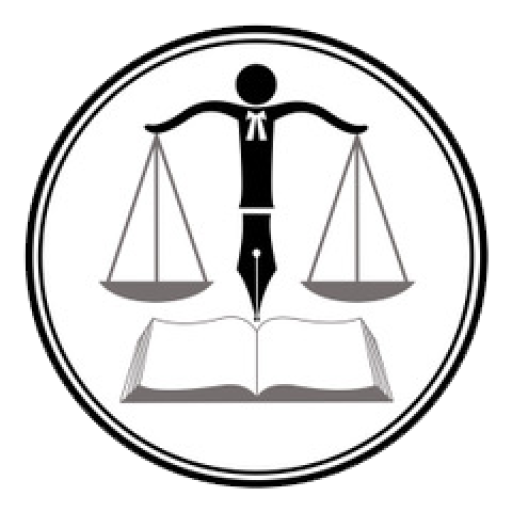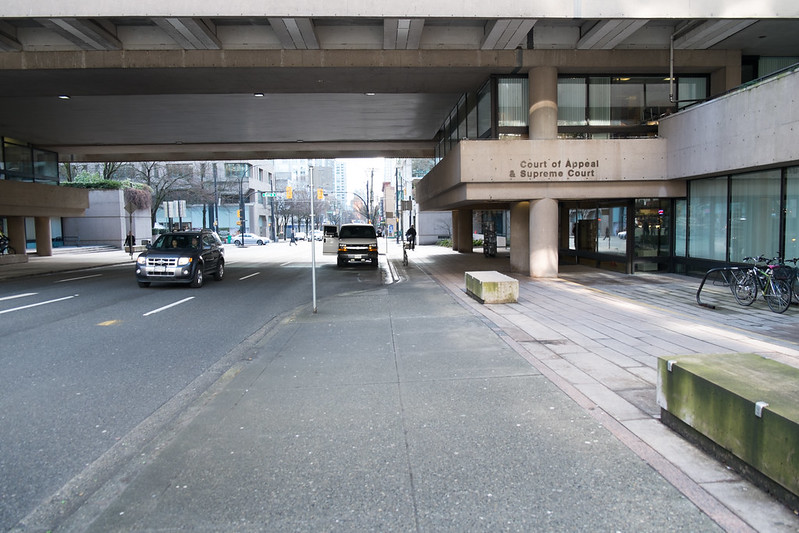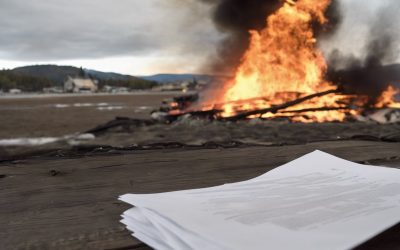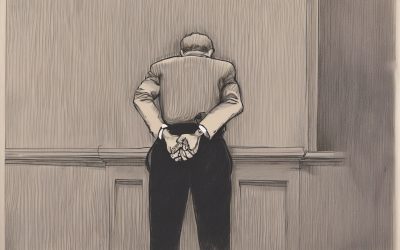This week’s top three summaries: R v Davies, 2022 BCCA 103: 278.94 on fresh ev #appeal, R v Ghraizi, 2022 ABCA 96: 11(b) #exceptional circumstance, and R v Banks, 2022 NSSC 77: #witness schedule.
This week’s top case deals with whether s.278.94 provisions protecting use of sexual history apply to appeals and to what extent. For further reading and general reference on procedures and legal issues for appeal, I recommend the Emond title below. It is available for purchase now for our readership with a 10% discount code provided below. To purchase, simply click on the image below.
Criminal Appeals: A Practitioner’s Handbook
By Mark C. Halfyard, Michael Dineen & Jonathan Dawe
R v Davies, 2022 BCCA 103
[March 18, 2022] Section 278.94 and Fresh Evidence Applications on Appeal [Reasons by Madam Justice Bennett with Stromberg-Stein and Fisher JJ.A. concurring]
AUTHOR’S NOTE: As the constitutionality of some of the new sexual history provisions of the criminal code are on reserve at the Supreme Court, the BCCA has issued a decision on the issue of what should happen at the appellate level when counsel attempts to lead fresh evidence involving 276 evidence. The answer is that while notice of such evidence will be required and an in camera hearing will be adapted into the appellate context, other protections may or may not be adopted based not the circumstances of the particular case. The Court retains discretion as to the particular process. Here, the complainant’s participation was held to intervenor status.
Overview
[1] Do the rights of privacy and dignity afforded a sexual assault complainant apply beyond the trial, and encompass the appeal process? To ask the question is to answer it—clearly yes.
[2] The issue on this motion is how to preserve those rights within the appeal process, and in particular, in the context of the introduction of fresh or new evidence on appeal.
[3] The appellant, Jacob Davies, was convicted of sexual assault of the complainant. At the time of the trial, a witness, who the trial judge found to be “a very credible and reliable witness, who comes before the court without any bias”, was apparently the boyfriend of the complainant.
[4] Mr. Davies has tendered an application to adduce fresh evidence, from which he wishes the Court to draw an inference that the complainant and the witness were in an intimate relationship.
[5] The Crown has brought an application in advance of the hearing of the appeal asking this Court to establish the procedural parameters for the reception of this evidence in the appellate context. Shortly before the hearing, counsel for the complainant (an experienced litigator in this field) sought to appear, which was permitted, as submissions as to the appropriate procedure from the complainant’s perspective were welcome. Given the short notice, the Court did not decide in advance whether the complainant had standing in her own right or as an intervenor. In my view, the complainant was properly before the Court as an intervenor, and not with independent standing.
[6] It is important to delineate what is before the Court on this motion, and what is not. We are not deciding whether the evidence tendered is admissible as fresh evidence—that will be decided by the division scheduled to hear the appeal. This motion is only in relation to whether the regime in ss. 276, 278.93 and 278.94 of theCriminal Code, R.S.C. 1985, c. C-46, applies to applications to adduce fresh evidence.
The Legislation
[12] The opening words of s. 276, “[i]n proceedings in respect of” have been interpreted to have a broad meaning, and the regime applies to any proceedings in which an offence listed in s. 276 has some connection to the charge: R. v. Barton, 2019 SCC 33 at para. 76. The Court in Barton concluded that a “broad, generous interpretation that does not unduly restrict the regime’s scope of application would best achieve these objects”: para. 74.
[13] Accordingly, s. 276 has three components: the prohibition on evidence going to the twin myths (s. 276(1)), criteria for the admission of evidence not going to the twin myths (s. 276(2)), and the considerations that the judge must take into account in deciding whether such evidence is to be admitted (s. 276(3)). The procedure for the admission of s. 276(2) evidence contemplates two steps: the application step (s. 278.93) and the hearing step (s. 278.94).
Discussion
[18] As noted, it appears that the purpose, aims and goals of the legislation are primarily directed towards the trial process. However, that does not end the matter. The substantive purpose, protecting the dignity and privacy of complainants, is not limited to the trial process. There is no disagreement amongst the parties on that point. Indeed, this motion was heard in camera, as contemplated by the legislation. However, there is disagreement on whether the procedural aspects—such as the requirement of providing detailed particulars of the proposed evidence, the complainant’s standing and the provision of reasons found in ss. 278.93 and 278.94 apply to the appellate process.
[19] The question becomes, should the procedures set out in those sections be given a broad, generous interpretation thus making them wholly applicable in the appellate context, or can the law in relation to the admission of fresh evidence on appeal achieve the same result?
[20] This Court may receive fresh evidence pursuant to s. 683 of the Code:
683 (1) For the purposes of an appeal under this Part, the court of appeal may, where it considers it in the interests of justice,
…
(d) receive the evidence, if tendered, of any witness, including the appellant, who is a competent but not compellable witness;
[21] The general principles applicable to fresh (or new) evidence on appeal are well-known, and set out in Palmer v. The Queen, 1979 CanLII 8 (SCC), [1980] 1 S.C.R. 759 at 775:
(1) The evidence should generally not be admitted if, by due diligence, it could have been adduced at trial provided that this general principle will not be applied as strictly in a criminal case as in civil cases: see McMartin v. The Queen [citation omitted].
(2) The evidence must be relevant in the sense that it bears upon a decisive or potentially decisive issue in the trial.
(3) The evidence must be credible in the sense that it is reasonably capable of belief, and
(4) It must be such that if believed it could reasonably, when taken with the other evidence adduced at trial, be expected to have affected the result.
[22] In R. v. Hamzehali, 2017 BCCA 290 at para. 35, this Court adopted the approach to the test set out by Cromwell J.A. (as he then was), in R. v. Wolkins, 2005 NSCA 2:
[58] Fresh evidence tends to be of two main types: first, evidence directed to an issue decided at trial; and second, evidence directed to other matters that go to the regularity of the process or to a request for an original remedy in the appellate court. The legal rules differ somewhat according to the type of fresh evidence to be adduced. Mr. Wolkins advances evidence of both types.
[59] Fresh evidence on appeal which is directed to issues decided at trial generally must meet the so-called Palmer test. A key component of that test requires that the proposed fresh evidence could not have been available with due diligence at trial: R. v. Palmer,1979 CanLII 8 (SCC), [1980] 1 S.C.R. 759 at 775. This rule makes it clear that the place for the parties to present their evidence is the trial. If evidence that with due diligence could have been called at trial were admitted routinely on appeal, finality would be lost and there would be less incentive on the parties to put forward their best case at trial. The rule requiring due diligence at trial is therefore important because it helps to ensure finality and order, two features which are essential to the integrity of the criminal process: R. v. G.D.B., 2000 SCC 22 (CanLII), [2000] 1 S.C.R. 520 at para. 19….
…
[61] The other category of fresh evidence concerns evidence directed to the validity of the trial process itself or to obtaining an original remedy in the appellate court. In these sorts of cases, the Palmer test cannot be applied and the admissibility of the evidence depends on the nature of the issue raised. For example, where it is alleged on appeal that there has been a failure of disclosure by the Crown, the focus is on whether the new evidence shows that the failure may have compromised trial fairness: see R. v. Taillefer; R. v. Duguay, 2003 SCC 70 (CanLII), [2003] 3 S.C.R. 307 at paras. 73–77. Where the appellant seeks an original remedy on appeal, such as a stay based on abuse of process, the evidence must be credible and sufficient, if uncontradicted, to justify the appellate court making the order sought: see e.g. United States of America v. Shulman, 2001 SCC 21 (CanLII), [2001] 1 S.C.R. 616 at paras. 43–46. Where the appellant alleges that his trial counsel was incompetent, the fresh evidence will be received where it shows that counsel’s conduct fell below the standard of reasonable professional judgment and a miscarriage of justice resulted: see R. v. G.D.B., supra.
[23] An application to adduce fresh evidence that engages s. 276 may be either type as described above.
[37] There is a question of whether s. 278.93 should even be invoked at the appellate level, as fresh evidence must be relevant to be admitted. Evidence that perpetuates one or both twin myths is not relevant evidence, and thus resort to the application requirements of s. 278.93 is not necessary.
[38] While this argument has some appeal, importing aspects of the procedures in s. 278.93 into the appellate process focusses the issue with respect to any fresh evidence that might raise prior sexual conduct. More particularly, the requirements of proper notice and providing detailed particulars of the proposed evidence and its relevance to an issue at trial in s. 278.93(2), and holding the hearing portion in relation to that aspect of the fresh evidence in camera in s. 278.93(3), are easily adapted in the appeal context. [PJM Emphasis]
[39] In my view, however, the hearing under s. 278.94 to determine if the evidence that is “capable of being admissible” is actually to be admitted would generally have no application in the appellate process. Nor would the publication prohibitions in s. 278.95, as the facts of the prior sexual conduct often have to be set out in the reasons for judgment in order to give guidance to lower courts. However, appellate courts should take considerable care when reciting facts and keep them as circumscribed as possible. No doubt the name of the complainant will be anonymized, and sometimes more will need to be done.
[40] Having said all that, there may be cases where an appellate court is of the view that it should embark on a hearing similar in nature to one pursuant to s. 278.94, perhaps, amongst other things, for guidance to the trial court. I would not foreclose a court from holding such a hearing in the appropriate circumstances and granting standing to a complainant to make submissions on appeal.
[41] In summary, in most cases where fresh evidence involving s. 276 evidence is tendered, the appellant will comply with the spirit of the procedures in s. 278.93. The complainant will not have standing to appear and make submissions with respect to the evidence. The application will however, be in camera; proper notice and detailed particulars of the proposed evidence will be given to the Crown and the Court; and safeguards and measures to protect the identity of the complainant will be taken. [PJM Emphasis]
R v Ghraizi, 2022 ABCA 96
[March 17, 2022] Charter 11(b): Exceptional Circumstances have to be Mitigated by the Crown [Frederica Schutz, Dawn Pentelechuk, and L. Bernette Ho JJ.A.]
AUTHOR’S NOTE: The change in culture mandated by the SCC in Jordan continues to face practical challenges in the courts. Herein, a number of exceptional circumstances occurred: Crown counsel illness, unavailability due to extension of another jury trial for Crown counsel, and the Covid-19 pandemic. However, as upheld on appeal, the Crown must establish that the exceptional circumstance would permit part of the delay to be deducted. Part of this is the Crown’s duty, once the such a delay occurs, to take steps to try to address it and keep the delay under the Jordan timelines. Indeed, once the ceiling is exceeded the focus is on whether the Crown made reasonable efforts to respond and to conclude the trial under the ceiling.
Decision of the Trial Judge
[2] After finding that none of the delay was attributable to the defence and the case was not complex, the trial judge concluded that the 20-month delay was presumptively unreasonable, as it exceeded the 18-month ceiling set by R v Jordan, 2016 SCC 27, [2016] 1 SCR 631.
[3] Mr Ghraizi’s one-day trial was originally set for November 28, 2019, 11 months after he was charged. The trial did not proceed on this date due to Crown illness and was adjourned to March 2, 2020. The trial did not conclude on March 2 and was scheduled to continue March 16, 2020, but did not proceed because the assigned Crown counsel was in a jury trial that went longer than its anticipated finish date.
[4] The matter was put over to March 23, 2020 to schedule a further date.
[5] As a result of the Covid-19 pandemic, the Provincial Court of Alberta on March 17, 2020 restricted all in-person appearances in the courthouse and presumptively adjourned most matters for 10 weeks. On March 23, the matter was presumptively adjourned for 10 weeks to June 1. On April 29, 2020, defence was able to reschedule the trial. The earliest date which the system could accommodate was September 25, 2020, 21 months from the date Mr Ghraizi was charged. … The Crown argued that both Crown counsel illness and the Covid-19 pandemic were exceptional circumstances as contemplated in Jordan and that the entirety of these time periods should be deducted from the delay.
[6] The trial judge rejected this argument. Relying on Jordan, at para 70, the trial judge found that it was not enough for the Crown, once the ceiling was breached, to point to past difficulty. The Crown also had an obligation to show it took reasonable steps to avoid and address the problem before the delay exceeded the ceiling. The trial judge found that there was no information before her to indicate “any particular steps were taken or contemplated by the Crown to address the delay occasioned by [Crown counsel’s illness] and indeed the next adjournment occasioned by the Crown” and instead, that the Crown simply participated in defence counsel’s rescheduling of the matter in the ordinary course. She declined to deduct the first period from the delay.
[7] Regarding the second period of delay, the trial judge rejected the Crown’s argument that the period of March 17 to July 6, when there was a partial resumption of in-person access to the court, should be deducted from the total time as an exceptional circumstance. Regarding the second period of delay, the trial judge deducted just over one month, reasoning as follows:
… Here, had there been no shutdown, the case would have been rescheduled on March 23rd. That rescheduling could not happen on that date because of the unavailability of scheduled services of the court. However, the case was rescheduled on April 29th, just over 1 month later. … The delay occasioned by the exceptional circumstance of reduction of services arising from the COVID-19 pandemic in this case was 1 month. That leaves a delay of approximately 20 months, still over the presumptive ceiling. (AR 147/11-20)
Decision of the Summary Conviction Appeal Judge
[9] We find that a proper application of the standard of review is dispositive of this appeal.
[10] The trial judge’s findings of fact are entitled to deference and can be set aside only if a palpable and overriding error is shown: R v Wilson, 2019 ABCA 502 at para 8, 383 CCC (3d) 399, citing inter alia R v Warring, 2017 ABCA 128 at para 5, 347 CCC (3d) 391, leave refused [2017] SCCA No 224 (QL), R v Regan, 2018 ABCA 55 at para 32, 359 CCC (3d) 53, leave refused [2018] SCCA No 102 (QL). The characterization of periods of delay and the ultimate decision regarding reasonableness of a period of delay are reviewed on a standard of correctness: R v JEK, 2016 ABCA 171 at para 10, 337 CCC (3d) 222; Wilson, at para 8.
[11] … We agree with the trial judge’s thorough and nuanced reasoning. As she properly noted, once the presumptive ceiling is exceeded, the onus shifts to the Crown to establish an exceptional circumstance that would permit part of the delay to be deducted.
[12] We agree with both the trial judge and summary conviction appeal judge that Crown counsel illness, unavailability due to the assigned Crown’s jury trial extending, and the Covid-19 pandemic were exceptional circumstances. However, identifying an exceptional circumstance is not sufficient. As the Supreme Court of Canada instructs us in Jordan, at paras 74-75, once the ceiling is exceeded, “the focus should be on whether the Crown made reasonable efforts to respond and to conclude the trial under the ceiling” and that “the Crown must always be prepared to mitigate the delay resulting from a discrete exceptional circumstance. So too must the justice system”. [PJM Emphasis]
[13] The trial judge found, and the trial Crown conceded, that no steps were taken by the Crown to address the delay resulting from either delay period. The Crown had therefore failed to meet its onus of establishing it took reasonable steps to overcome any exceptional circumstance. The summary conviction appeal judge, however, appeared to overlook that key factual finding, instead concluding that there was nothing anyone could do to have the matter rescheduled for trial between March 17 and July 31, 2020. That approach, in our view, applied an overly restrictive assessment of whether the Crown met its obligation to take reasonable steps to address the delay. Reasonable steps are not simply measured in the context of securing a new trial date. Nor is it necessary that the Crown establish the steps taken would have been successful in reducing or mitigating delay. As but one example offered, Crown counsel took no steps to try to shorten the trial by reviewing whether the evidence of two police officers could be dispensed with.
[14] … Counsel illness or witness unavailability or trial over-runs are simply part of the vagaries of running a trial. There is an obligation on all parties to work toward a sufficient resolution of trials. As succinctly stated in Jordan, at para 56: the presumptive ceiling “is not an aspirational target. Rather, it is the point at which delay becomes presumptively unreasonable. The public should expect that most cases can and should be resolved before reaching the ceiling”.
[15] In summary, we find no error in the trial judge’s analysis and restore the stay of proceedings.
R v Banks, 2022 NSSC 77
[March 15, 2022] Defence Application for Crown Witness Schedule [Justice Pierre L. Muise]
AUTHOR’S NOTE: In longer trials, the issue of a witness schedule is particlulary important for the defence to be able to adequately prepare. Being prepared daily to examine every potential witness the Crown has is nearly impossible. Recognising this and in an effort to avoid delays that could result, Crown counsel have often given witness schedules without an application to ensure the trial proceeds on pace. In this case an unreasonable Crown position in this respect led to litigation and a precedent for the defence to use in future cases where the prosecution is unwilling to provide a witness schedule.
Application for Disclosure of Crown Witness List and Schedule
[1] Wayne Banks brought this application seeking an order directing the Crown to provide the Defence with a non-binding list of witnesses and a tentative schedule for the calling of those witnesses, along with timely notice of any changes to the intended witnesses or the order in which they will be called. In the alternative, he seeks severance of the Counts in the Indictment. Terry Banks joins in Wayne’srequest, but only provides reasons for the alternative remedy.
[4] Wayne Banks advances the following reasons for his witness list and schedule request:
- Though the Crown is not required to disclose it, it is preferable that it do so, as it minimizes delay by promoting fairness, efficiency and effectiveness, and the Court may order it as part of its trial management function, provided it does not “unfairly or irreparably damage the prosecution”: R. v. Fiddler, 2012 ONSC 2539; R. v. Browne, 2017 ONSC 5047; and, R. v. Felderhof, 2003 CanLII 37346 (ON CA), 2003 CarswellOnt 4943 (C.A.).
- “Trial judges should take a proactive approach in managing trials to minimize delay, improve efficiency, and change the ‘courtroom culture’”, especially where it impacts trial fairness: R. v. Cody, 2017 SCC 31; R. v. Potter, 2020 NSCA 9; and, R. v. Pickton, 2007 BCSC 2027.
- …
- … The Crown has subpoenaed about 45 witnesses. The trial is split in five chunks of time spread out over roughly one-half year. Without knowing which witnesses are expected to be called during each chunk, he will have to review and prepare for all potential witnesses. That is a waste of time and expense.
- …
-
The list and schedule will help him prepare and plan for trial, thus promoting trial fairness.
-
The Cook decision, relied on by the Crown, must be read in light of the much more recent Supreme Court of Canada decision in Krieger v. Law Society (Alberta), 2002 SCC 65 (CanLII), [2002] 3 S.C.R. 372, where it was stated that “decisions that govern a Crown prosecutor’s tactics or conduct before the court, do not fall within the scope of prosecutorial discretion” and “are governed by the inherent jurisdiction of the court to control its own process”: R. v. Felderhof, supra.
[5] The Crown opposes both requests. The reasons it provides for opposing the witness list and schedule request include the following:
- It has no obligation to call any particular witness: R. v. Cook, 1997 CanLII 392 (SCC), [1997] S.C.J. No. 22.
- It has no obligation to disclose the witnesses it will call: Mississauga (City) v. Ciocan, [2015] O.J. No. 2871 (Ont. Ct. Jus.).
- Even disclosure under R. v. Stinchcombe, 1991 CanLII 45 (SCC), [1991] S.C.J. No. 83, has its limits.
- Though the requested disclosure is good practice, being ordered to do so fetters the Crown’s discretion to decide which witnesses to call and in which order: R. v. Pinkus, [1999] O.J. No. 5464 (Ont. Sup. Ct. of J.). It effectively trumps “the exercise of Crown discretion”.
- Protecting prosecutorial discretion advances the public interest by freeing prosecutors of judicial or political interference: R. v. Anderson, 2014 SCC 41.
- Prosecutorial discretion should only be interfered with in “extraordinary and unique circumstances” amounting to “an abuse of process”: R. v. Auclair, 2014 SCC 6; R. v. Power, 1994 CanLII 126 (SCC), [1994] 1 S.C.R. 601.
- Directing “the Crown as to which witnesses it should call or in what order” is not an acceptable exercise of court authority, except possibly in unusual circumstances: R. v. Pickton, supra.
- The Felderhof and Pickton cases upon which the Defence relies involved unique and extreme circumstances, including lengthier and more complex proceedings.
- The Crown has not yet prepared a witness list, and cannot produce what it does not have, but it did advise the Defence, in its December 21, 2021 email, that it planned to start with the police witnesses then proceed to present evidence from the staff of Independent Fisheries.
- Though the Crown exercises a public duty, free of any notion of winning or losing, as described in Boucher v. R., 1954 CanLII 3 (SCC), [1955] S.C.R. 16, “the adversarial process is an important part of our judicial system and an accepted tool in our search for the truth” and the Crown must be allowed to vigorously pursue justice within that process: R. v. Cook, supra.
- The Crown, having been satisfied with the testimony of one of its witnesses, may properly decide not to call another witness it previously intended to call to avoid the possibility of inconsistent statements. It need not provide the Defence with an opportunity to exploit such potential inconsistencies. It may modify its trial strategy, “provided that the modification does not result in unfairness to the accused”: R. v. Jolivet, 2000 SCC 29.
- Warning the Defence that it should be prepared to respond to the whole case preserves the Crown’s discretion to choose and modify the ordering of witnesses, which is of increased importance because there are reluctant and international witnesses and Covid issues to deal with.
- The order requested provides an extraordinary remedy and should only be made in lengthy and complex cases. This case is not overly complex and could be heard in two weeks if agreements were reached regarding the voluminous documentary evidence. The core of the case will be the evidence of the nineteen witnesses who provided formal statements. Ten of those are associated with Independent Fisheries, a complainant, and three are associated with D-Light Seafoods, the company Wayne Banks worked for. The remaining witnesses will provide evidence of “continuity, authenticity and background”.
- The Defence has had the disclosure for years and presumably would already have prepared for the initial trial dates. It should be ready to cross-examine any witness. The Crown routinely does so with no disclosure and no notice of who the witnesses will be.
[6] I agree with the points made by the Crown except the following points for the following reasons:
- I disagree that being directed to advise the Defence of the witnesses who are expected to be called, and the order they are expected to be called in, fetters or trumps the Crown’s discretion to decide which witnesses to call and the order to call them in. The Crown still decides those points and it is still free to change its mind, and modify its trial strategy, at any time. Requiring timely notice of intention to change the witness list or schedule, similarly, does not fetter or trump Crown discretion. Both merely require the Crown to inform the Defence in advance of how it intends to exercise its discretion.
- The Court in R. v. Pinkus, at paragraph 9, stated: “One cannot be said to have discretion if one is ordered to disclose how discretion will be exercised.” I agree with that statement to the extent that it describes a situation where, once the Crown has disclosed how it intends to exercise its discretion, the Crown is bound to exercise its discretion in the way that it said it intended to. However, if the Crown remains free to adjust its presentation of witnesses, it maintains its discretion to determine which witnesses to call and when.
- The Crown suggests that changing its intended order of witnesses after disclosing it, may prompt adjournment requests, and that possibility may pressure the Crown to refrain from altering its witnesses or witness schedule, thus effectively limiting its exercise of discretion. As will be referenced further later, the authorities presented highlight the greater risk that the Defence will be put in a position where it needs to request an adjournment to properly prepare for cross-examination if it has no notice of the intended witnesses and witness schedule. The Crown is opposing disclosure of a witness list and schedule, despite that elevated risk. Consequently, the lesser risk of an adjournment resulting from a witness change ought not cause it sufficient concern to pressure it into maintaining its planned witness schedule. Furthermore, the possibility of a trial tactic causing delay always looms in the background as a factor which may influence the Crown’s exercise of discretion. That potential delay informs the Crown’s exercise of discretion. It does not fetter it. Therefore, the potential for a change in the witness schedule, and the accompanying possibility it might prompt an adjournment request, does not provide reasonable grounds to refuse to make the order requested.
- I disagree that the order requested provides an extraordinary remedy and should only be made in lengthy and complex cases. The Felderhof and Pickton cases referred to in support of that submission were lengthy and complex cases in which the order was made. However, the remedy which was referred to as being exceptional was directing the manner or order in which evidence was to be called. Neither case described the witness list and schedule remedy as being extraordinary. Rather, as submitted by the Defence, it is merely part of the trial judge’s inherent trial management power. As noted in Felderhof, that power must be exercised with care to avoid an overly interventionist approach that could raise a reasonable apprehension of bias. However, that does not make it an extraordinary remedy to require disclosure of a list of intended witnesses and when they are expected to testify. [PJM Emphasis]
[7] In relation to other points raised by the Crown, I make the following comments:
- There is no dispute that the Defence has had the disclosure for years and presumably would already have prepared for the initial trial. However, that trial was scheduled to start June 24, 2019, which is over two years and eight months before the now scheduled start date of March 7, 2022. It is unlikely that that the Defence would be ready to cross-examine the witnesses without significant additional trial preparation.
- The Crown suggests that it is fair to expect the Defence to be ready for any potential witness revealed in the disclosure, at any time, because the Crown routinely cross-examines defence witnesses with no advance disclosure and no notice of intended witnesses. That submission ignores the fact that, unlike an accused person, the Crown is not at jeopardy of being wrongfully convicted. In addition, absent certain established exceptions, requiring the defence to disclose intended witnesses in advance would risk breaching the accused’s right to silence and their right to not be forced to provide information for the Crown to use against them. Since the Crown already has a duty to disclose all relevant information, requiring it to provide a list of witnesses, and the order in which they will be called, does not have a similar prejudicial effect upon the Crown. It only sets a deadline for the Crown to make its initial assessment on how it will exercise its discretion to present its case. Plus, like the defence, if the Crown is of the view that it has been unable to properly prepare for cross-examination, it may request an adjournment.
- It is true that the Crown cannot disclose a witness list if it does not have one. However, as part of its case management function, the court routinely directs timelines for certain steps, such as filing of briefs. Therefore, it is within the proper scope of a trial judge’s case management function to set a deadline for the Crown to prepare and disclose a witness list and schedule.
[9] … there are subsequent decisions binding me which, as stated by the Defence, direct that “trial judges should take a proactive approach in managing trials to minimize delay, improve efficiency, and change the ‘courtroom culture’”. The Cody and Potter decisions advanced by the Defence for that principle both follow the direction to that effect in R. v. Jordan, 2016 SCC 27. As stated at paragraph 752 of Potter, after referencing pre-Jordan decisions dealing with trial management issues: “The scope of a trial judge’s case management functions must also be viewed in light of Jordan’s direction that the culture of complacency in criminal proceedings is not to be tolerated.”
[10] … At that time, the Court raised concerns regarding s. 11(b) delay issues relating to Wayne Banks. His lawyer correctly pointed out that, after deducting the waiver periods, the new trial dates would still be within the Jordan timelines. However, the scheduled end of trial approaches those deadlines. That makes it even more important to take steps to help prevent any further delay. Ordering the Crown to provide a tentative witness list and schedule would be such a step.
[11] Even though only 19 witnesses are identified as being core Crown witnesses, over 40 Crown witnesses have been subpoenaed. I agree with the Defence that having to prepare for the beginning of trial without having any tentative schedule as to who will be called first would be a tremendous waste of the Defence’s legal resources. …
[12] Also, the trial is not scheduled to run continuously. There are gaps between blocks of trial days. Therefore, the Defence would have to review its preparation for all remaining witnesses in advance of each new block of trial days. It would also have to review all documents it sees as potentially relating to all those witnesses. Thus, some of the waste of legal resources would be repeated for each block of trial time.
[14] In a document heavy case, spreading your preparation attention amongst a large number of witnesses can easily lead to transposing of documents as relating to one individual, when they relate to another. That can result in time being wasted searching for useful documents, or, worse yet, overlooking significant documents and losing the opportunity to cross-examine on them. Also, as noted by the Defence, it can result in overlooking disclosure and evidentiary issues.
[16] The more the Defence can focus on the witnesses that will be called, as the various blocks of trial time approach, the better prepared it will be. That promotes an efficient use of trial time and minimizes the chance that adjournments may be needed. [PJM Emphasis]
[19] Even in Pinkus, where the Court refused to “order the Crown to inform the defence as to whether a particular witness would be called”, the Court, at paragraph 11, stated: “it would be helpful, indeed advisable, for the Crown to inform the defence in advance of its intention to call particular witnesses, and generally inform the defence of the anticipated list and timeframes of witnesses”, and, “[t]he failure to do so would inevitably lead to numerous adjournments being sought so that defence counsel might properly prepare to defend the case from hour to hour and day to day” which “is not in the best interests of the administration of justice”. Those same sentiments are echoed in other decisions. I agree with them.
[20] In the circumstances of the case at hand we do not have the luxury of risking such unnecessary delay.
[21] All justice system participants, including the courts, have a responsibility to take all reasonable steps to avoid unnecessary delay and promote reasonably fair, efficient and expeditious trials.
[22] Being required to disclose the witnesses and witness schedule does not damage the prosecution. Arguably, it assists the prosecution by setting a deadline for some of its trial preparation, which helps overcome natural tendencies to put it off. [PJM Emphasis]
[23] It also promotes the search for the truth by better facilitating Defence preparation so that it can conduct an effective cross-examination to test the evidence. Since a Boucher Crown is not to concern itself with the notion of winning or losing, that result is consistent with the Crown’s duty to the public.
[24] Considering these circumstances, factors and points, I conclude that it is proper to, and do, order that the Crown provide the Defence with a list of the witnesses it intends to call, and the order in which they are expected to be called, for each block of trial days, as follows: at least 5 calendar days before the first day of the first block of trial days (which is only 2 days from now, but since it is so close to the beginning of the trial it is to be provided by noon on that day); and, at least 12 calendar days before the first day of each subsequent block of trial days, by 4:00 PM on those days. [PJM Emphasis]
[25] Also, should there be any change to the intended list of witnesses, or to when they are expected to be called, the Crown shall inform the Defence as soon as reasonably practicable of that change.
Criminal Appeals: A Practitioner’s Handbook
By Mark C. Halfyard, Michael Dineen & Jonathan Dawe






